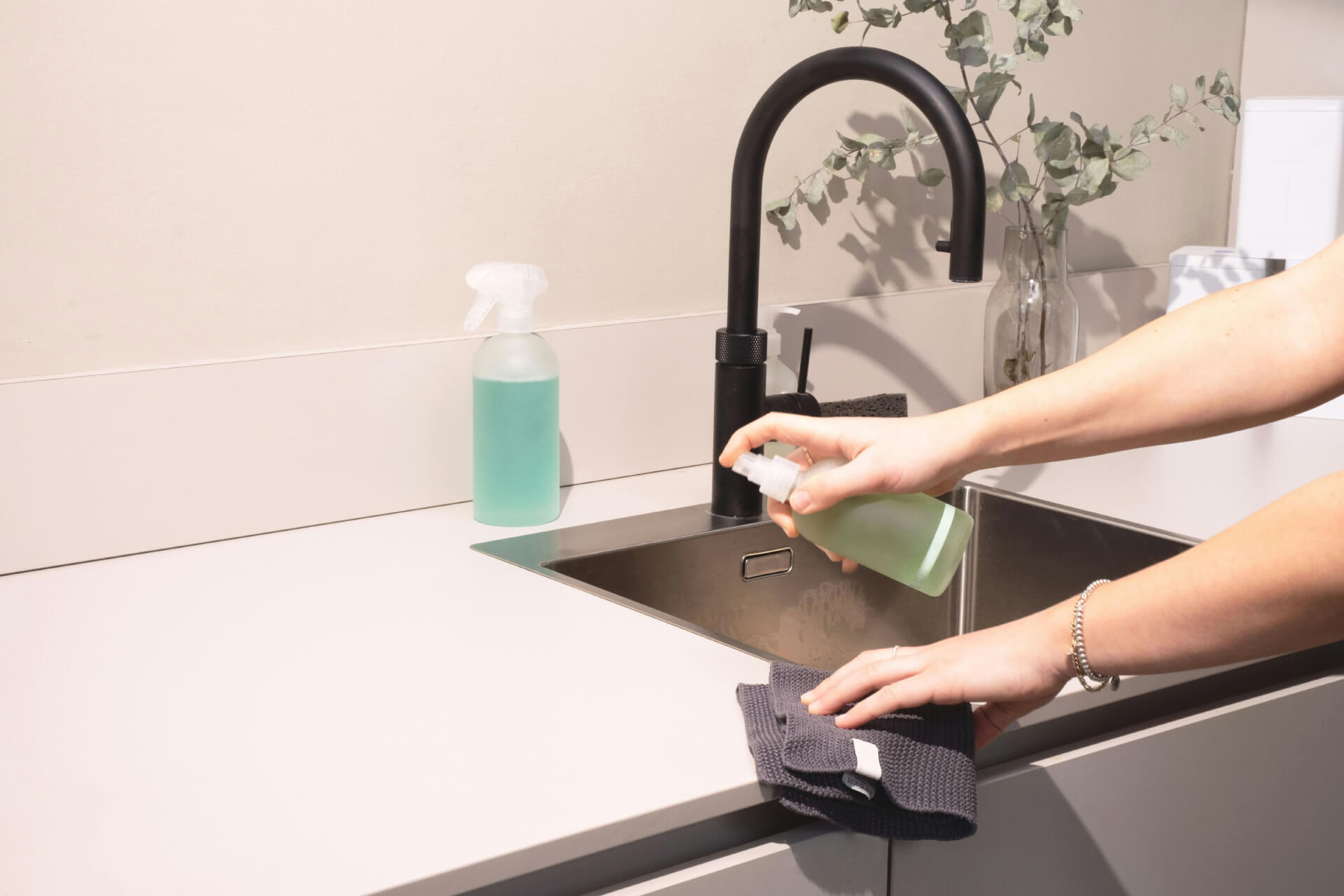
The Hidden Hazards of Household Cleaners
And some simple ways to keep your home clean and healthy
Keeping our living spaces clean is essential for good health — but ironically, many household cleaning supplies that foam, bleach, scour, and disinfect may actually harm us.
Recent studies suggest that what we use to clean may be a major source of indoor air pollution. For example, contaminants released from common items such as personal care and cleaning products contribute to poor air quality. One study published in the journal Science examined volatile organic compounds (VOCs), gases emitted by products like bleach, soap, paint, deodorant, and air fresheners, as well as through other processes like the combustion of motor fuel.
The study found that although these household items only accounted for 4% of consumer products by volume, they were responsible for 38% of VOC emissions — nearly as much as gasoline-powered vehicles.
Household products also affect our water. After flowing down the drain, many chemicals from household cleaners are processed at municipal wastewater treatment plants and discharged into local waterways. While some ingredients break down quickly, others do not.
For instance, detergents, disinfectants, laundry stain removers, and citrus cleaners/degreasers contain a class of chemicals called alkylphenal ethoxylates (APEs). These substances act as surfactants, helping products break up grease and grime. But when APEs degrade, they can form toxic byproducts like nonylphenol and octylphenol, which don’t break down easily and have been linked to hormone disruption and immune system effects in both humans and wildlife.
Keeping Your Home Clean — Without the Chemicals
Before you break out the bucket of cleaning supplies, try these day-to-day tips that can reduce your reliance on toxic chemicals.
- Vacuum often. Ideally a vacuum with a bag and a HEPA filter. This helps to protect whoever is vacuuming if they are sensitive, and keeps dust and debris from recirculating in the air. Replace the bag and filter as per guidelines on the vacuum.
- Dust often. We shed almost 1 million skin cells over a 24-hour period and that is part of what circulates in the air as dust. Use a microfibre cloth — dust sticks to microfibre — to cover any areas the vacuum can’t reach.
- Fold your duvet or comforter down instead of making your bed right away in the morning. Airing out your sheets and exposing them to sunlight can help keep your bedding fresher longer.
- Choose natural fabrics, furniture, towels, and bed sheets. This will reduce the amount of particles circulating in the air.
- Regarding cleaning supplies, keep it simple. A few low-cost items, combined with a little elbow grease and a coarse sponge for scrubbing, can meet most of your household cleaning needs:
- Soap & Water; we love EWG approved brands like AspenClean, Attitude, Dr. Bronners, Guests of the Earth, HealthyBaby.
- Baking Soda; great for scrubbing sinks and surfaces.
- Vinegar; natural deodorizer and disinfectant.
- Lemon Juice; cuts grease, adds fresh scent.
7 Tips When Choosing Commercial Cleaners
When you need the convenience or extra strength of commercial cleaners, you can make choices that minimize the impact on your health and the environment.
- Always read product labels and follow directions carefully. If ingredients aren't listed, check the packaging for hazard warnings like “corrosive” or “may cause burns.”
- Watch for vague marketing terms like “green” or “natural.” Instead, look for specific claims such as “biodegradable in 3-5 days,” “plant-based,” or “no solvents.”
- Avoid products with ammonia or chlorine bleach – when combined together they create dangerous chloramine gas.
- Avoid air fresheners and scented cleaning or laundry products that don’t disclose their fragrance ingredients; these often contain suspected endocrine disruptors, such as phthalates.
- Avoid products that contain quaternary ammonium compounds or “quats”; these chemicals are associated with asthma, and reduced fertility and birth defects in animals.
- Avoid products with triclosan the microbial, which has been linked to increased allergen sensitivity and disruption of thyroid levels even in small doses.
- Ventilate, ventilate, ventilate – open windows, turn on a fan, or make sure your HVAC system is running if you have one.
—
Curious how you can make your home healthier?
ERTH360 Air is a whole-home clean air system grounded in the science of building biology. This six-stage solution is designed to reduce your exposure to harmful chemicals and airborne pollutants, to help you breathe easier, naturally.
Visit our solutions page to learn more.

